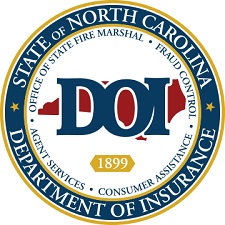
Special to Iredell Free News
RALEIGH — North Carolina Insurance Commissioner Mike Causey has established a voluntary cancer registry within the Office of State Fire Marshal to help agency and other officials understand how serious of a health risk cancer is to firefighters and first responders.
“We know firefighters and first responders are at greater risk of getting cancer as a result of their dangerous jobs,” said Commissioner Causey, who is also the State Fire Marshal. “We just don’t know how serious the problem is. With the data collected through the cancer registry, we plan to give legislators and other officials more solid information so they can help protect the firefighters and first responders who protect their communities.”
Fire chiefs and county fire marshals have access to the voluntary cancer registry on the Department of Insurance’s Office of State Fire Marshal web site.
Information gathered will help the Commissioner and the OSFM determine the seriousness of the rising cancer problem for first responders.
Over the years, materials used to build houses and other buildings have changed, with some of those materials containing carcinogens that firefighters and first responders inhale when responding to calls. The result has been higher rates of certain types of cancer and death rates for firefighters and first responders.
Fire departments are battling this risk by improving equipment and cleaning firefighters’ turnout gear more promptly. When worker’s compensation cases have arisen, the N.C. Industrial Commission has set the precedent by ruling the cases as line-of-duty illnesses or line-of-duty deaths.
A study of approximately 30,000 firefighters cited by the Centers for Disease Control found that firefighters are more likely than the general population to develop certain types of cancer and cancer-related deaths. Efforts are underway to establish a national registry. However, the state registry, which is already operational, will give officials quicker results and will give a clearer picture of the needs of North Carolina firefighters.



